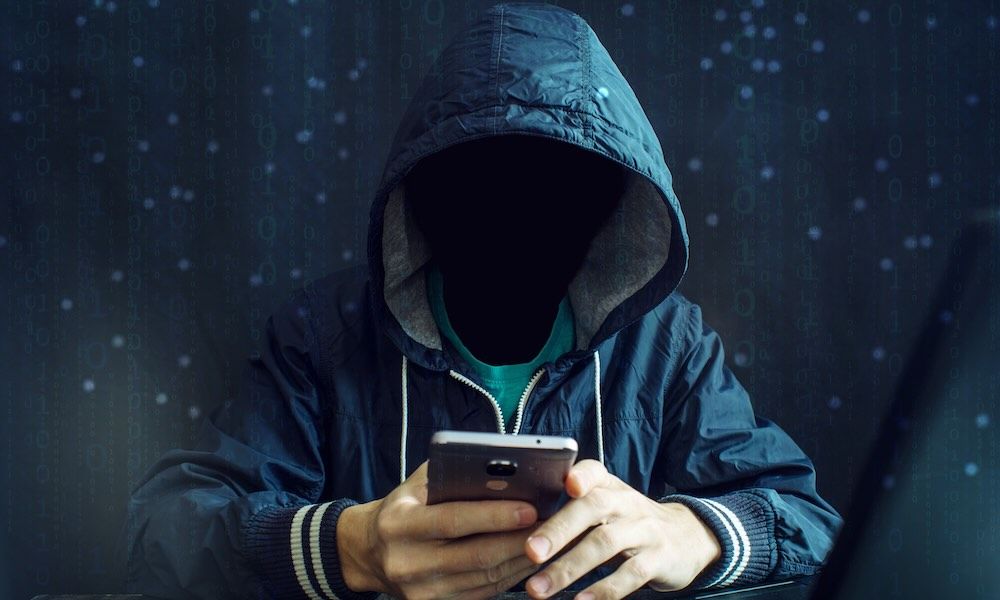Signs Your iPhone Has Been Hacked
 Credit: Artem / Adobe Stock
Credit: Artem / Adobe Stock
Toggle Dark Mode
Phone hacking awareness is important. Our phones are no longer simply communication tools, but warehouses of our most sensitive data. Far more than the value of the iPhone itself, the photos, messages, emails, and financial information it stores are personal and precious.
Here we want to help inform you of some of the basic signs your iPhone has been hacked and how to respond.
Signs of a Hack
- Contacts complaining you’re spamming them. If your contacts and friends inform you they’re receiving unusual texts or emails from you, this is a strong indicator that one of your email accounts or your device itself has been compromised.
However, keep in mind that messages from your email address don’t necessarily indicate that your email account has been hacked; spambots and malware will often pull your address from other compromised computers and use it as the “From” address to mask their actual source.
If you receive a complaint, ask for details and check the sent folder for the specific account those messages are supposedly coming from. If you don’t see anything there, ask your contact if they can share the email headers; these will show where the message actually originated. - Unfamiliar apps and pop-up ads. If you’re seeing apps on your iPhone you sure you can’t remember installing, there’s a good change these are malicious and may indicate a hack.
Are you experiencing the scarily familiar and intrusive pop-up ads when you use the browser? It’s not surprising to see scammy popups if you’re visiting unknown sites, but if they’re appearing when browsing on reputable sites, that’s a cause for concern and could indicate some malware has gotten into your browser. - Poor performance and quickly draining battery. If your iPhone is slower than usual and if the battery life is shorter than normal, it could mean you’ve been hacked. Also, if you notice your iPhone is much hotter than usual, that might mean a dangerous program is running in the background.
There are many other reasons this could be happening, so don’t panic right away, but if this is a consistent problem even after rebooting your iPhone, then it bears further investigation. - Receiving unfamiliar texts or calls. If you’re receiving strange calls or texts from unrecognized sources, this could indicate that malicious activity is in the works.
Unknown calls or texts could be spam or phishing attempts to trick you into giving away personal information or to install hacking software onto your phone. Hackers can also spoof phone numbers so that the calls or texts you’re receiving appear to be coming from a legitimate source. - Sent messages you didn’t send and outgoing calls you didn’t make. While it’s not unusual to not remember a call or text here and there, anything more is suspicious. It’s possible hackers are using your phone to make calls, often to premium-rate numbers.
- Unusually high data usage. Unexpected charges on your bill and abnormally high data usage are other indicators of a potential security issue. Malicious software could be running in the background. Even if you have an unlimited data plan, it’s good practice to stay familiar with your typical usage.
Hack Prevention and Response
Vigilance is critical to preventing unwanted security issues. This means:
- Don’t answer calls from unknown or suspicious numbers, and definitely don’t respond to unknown texts;
- Verify the recipient’s identity before providing personal information over the phone; ideally, if you receive a call from somebody claiming to be from a bank, service provider, or government agency, call them back at a known and published number;
- Understand the apps you download and the permissions you grant;
- Use caution when using public Wi-Fi networks. If you use public Wi-Fi without a VPN, it’s best to avoid logging into any critical applications like banking sites.
If you suspect you’ve been hacked:
- Change your passwords to all critical sites and services like banking and email accounts;
- Delete any suspicious apps;
- Keep your iPhone up to date, as updates almost always include security improvements;
- Run anti-malware software to identify malware and keep future browsing safe;
- Restart your iPhone;
- Contact a cybersecurity expert.
Smartphones are attractive targets for hackers as they often include a wealth of valuable personal information. Hacking methods include phishing, malware, and exploiting software vulnerabilities.
The consequences of a hack can be severe, ranging from identity theft and financial loss to extreme invasions of personal privacy. Being informed and staying proactive is key to safeguarding against hacking threats.








